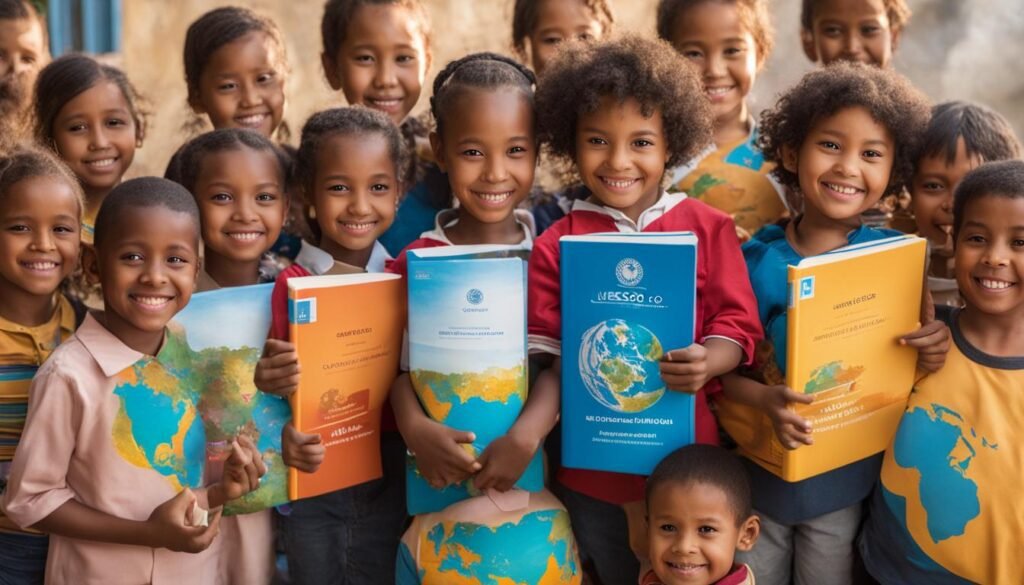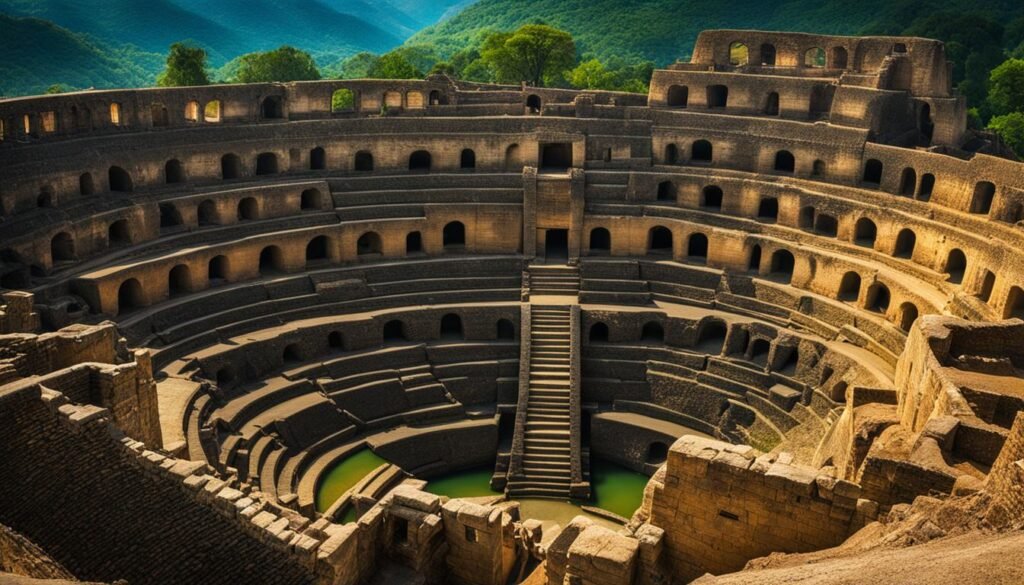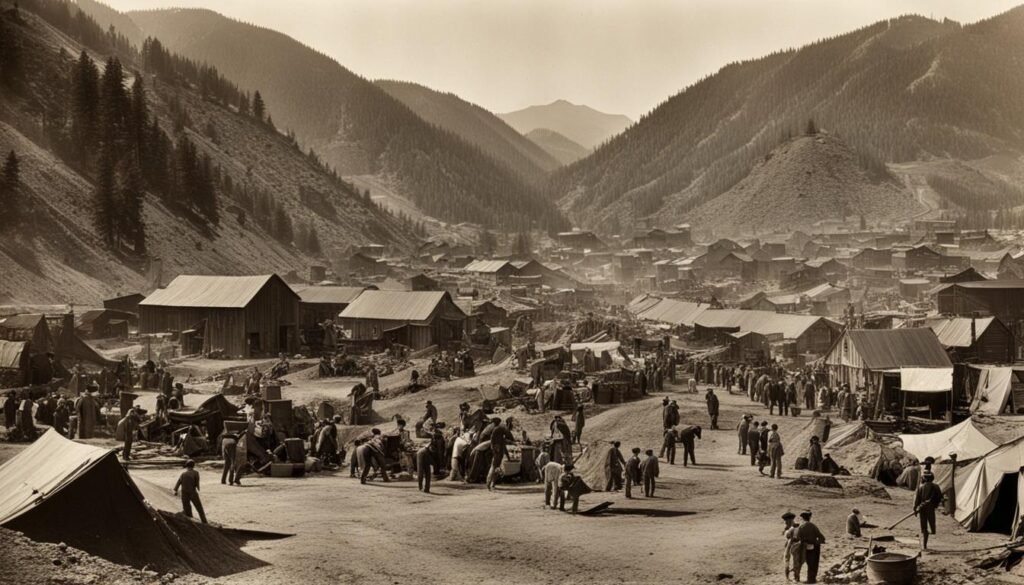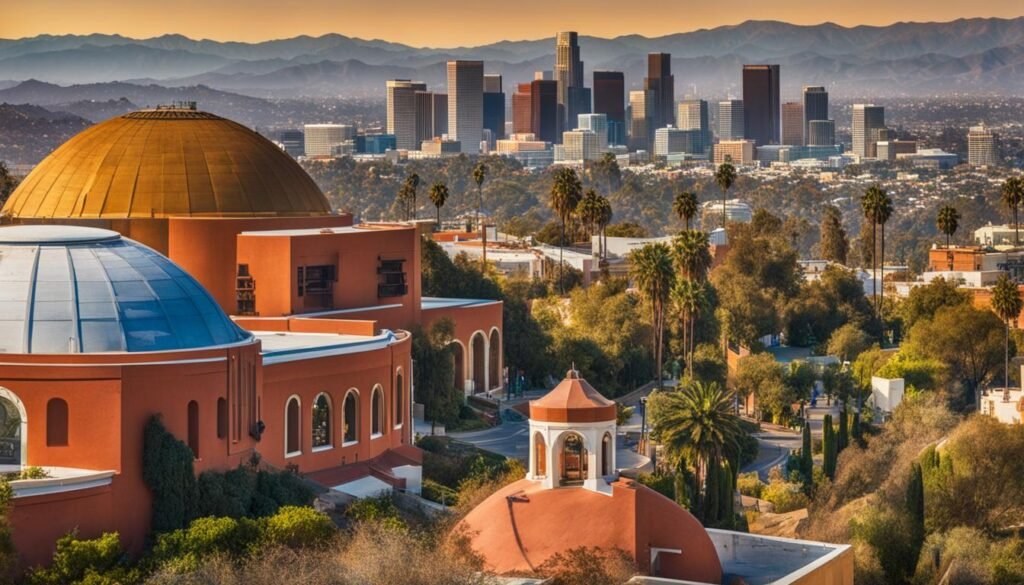When it comes to organizations dedicated to education, science, and culture, UNESCO is a name that stands out. But what does UNESCO really mean, and why is it important? In this article, I will delve into the definition and meaning of UNESCO, its role in preserving world heritage, and its impact on global development.
UNESCO, which stands for the United Nations Educational, Scientific and Cultural Organization, was established on November 16, 1945. With 195 Members and 8 Associate Members, UNESCO’s primary goal is to contribute to the building of a culture of peace, eradicate poverty, and promote sustainable development and intercultural dialogue through education, science, culture, communication, and information.
Throughout its existence, UNESCO has focused on various objectives, including attaining quality education for all, mobilizing science knowledge and policy for sustainable development, addressing social and ethical challenges, fostering cultural diversity and intercultural dialogue, and building inclusive knowledge societies.
UNESCO’s global priority areas include Africa and Gender Equality. It implements programs and activities to address the specific needs and challenges in these areas, promoting education, science, culture, and communication to contribute to sustainable development and peace.
One area where UNESCO has made a significant impact is in promoting the history, culture, and heritage of people of African descent. Through projects like the Slave Route and the General History of Africa, UNESCO works to combat racism, discrimination, and prejudice, while also honoring the memory of the victims of slavery and colonialism.
Education is another key focus for UNESCO. The organization sponsors projects and initiatives aimed at improving literacy, providing technical training and education, and ensuring access to quality education for all, regardless of their background or circumstances.
When it comes to protecting world heritage, UNESCO plays a crucial role. It designates and safeguards World Heritage Sites of cultural and natural significance, working closely with member states to ensure their preservation for future generations.
In the realm of sustainable development, UNESCO is involved in various projects and activities related to education, science, culture, and communication. By mobilizing science, knowledge, and policy, UNESCO aims to address global challenges and promote sustainable development.
Another important aspect of UNESCO’s work is promoting cultural diversity and intercultural dialogue. The organization recognizes the importance of preserving and promoting diverse cultural expressions and heritage, fostering understanding, tolerance, and respect among different cultures.
Lastly, UNESCO acknowledges the power of communication and information in promoting development. It advocates for access to information, media freedom, and the use of communication for development purposes.
UNESCO’s structure and governance are governed by the General Conference and the Executive Board. The organization collaborates with member states, non-governmental organizations, and other partners to carry out its mission and projects.
Overall, UNESCO’s impact and achievements are tremendous. Through its work in promoting peace, education, science, culture, and communication, UNESCO has made positive changes and advancements in various areas around the world.
Key Takeaways:
- UNESCO, the United Nations Educational, Scientific and Cultural Organization, contributes to building a culture of peace and sustainable development.
- UNESCO focuses on objectives such as quality education, sustainable development, cultural diversity, and intercultural dialogue.
- The organization prioritizes areas like Africa and Gender Equality, implementing programs to address specific needs and challenges.
- UNESCO plays a crucial role in preserving world heritage sites of cultural and natural importance.
- Through its work in education, sustainable development, cultural diversity, and communication, UNESCO has made a significant impact on global development.
UNESCO’s Objectives
UNESCO, with its mission to contribute to the building of a culture of peace, eradicate poverty, and promote sustainable development and intercultural dialogue, has a set of overarching objectives that guide its work.
1. Quality Education for All and Lifelong Learning
One of UNESCO’s primary objectives is to ensure that everyone has access to quality education and opportunities for lifelong learning. Through its initiatives, UNESCO strives to enhance learning outcomes, improve literacy rates, and promote inclusive education systems globally.
2. Mobilizing Science Knowledge and Policy for Sustainable Development
Recognizing the critical role of science in addressing global challenges, UNESCO aims to mobilize scientific knowledge and policy to drive sustainable development. It promotes interdisciplinary collaboration, scientific research, and the application of scientific solutions to pressing issues such as climate change, biodiversity loss, and environmental degradation.
3. Addressing Emerging Social and Ethical Challenges
UNESCO acknowledges the importance of addressing emerging social and ethical challenges in today’s rapidly changing world. It seeks to foster inclusive societies, combat discrimination and racism, promote gender equality, protect human rights, and enhance ethical frameworks in areas such as artificial intelligence, biotechnology, and digital innovation.
4. Fostering Cultural Diversity, Intercultural Dialogue, and a Culture of Peace
Cultural diversity and intercultural dialogue are at the core of UNESCO’s objectives. The organization works to safeguard and promote cultural heritage, support artistic expression, facilitate dialogue among different cultures, and promote mutual understanding, tolerance, and peace through cultural exchange and cooperation.
5. Building Inclusive Knowledge Societies through Information and Communication
With the rapid advancement of information and communication technologies, UNESCO aims to build inclusive knowledge societies. It focuses on improving access to information, fostering media freedom, promoting digital literacy, and using communication for development to bridge the digital divide and empower individuals and communities.
UNESCO’s objectives are crucial for advancing education, science, culture, and communication, and addressing global challenges. By working towards these objectives, UNESCO strives to build a more inclusive, sustainable, and peaceful world.
UNESCO’s Global Priority Areas
UNESCO focuses on two global priority areas: “Africa” and “Gender Equality.” In line with its mission to contribute to sustainable development and peace, UNESCO implements various programs and activities to address the specific needs and challenges in these areas.
One of the key programs under the Africa priority area is the UNESCO Africa Program, which aims to strengthen education systems, promote youth empowerment, and support cultural heritage preservation in African countries. Through this program, UNESCO works closely with governments, organizations, and communities to enhance educational opportunities, foster cultural diversity, and drive socio-economic development across the continent.
Under the Gender Equality priority area, UNESCO champions initiatives that promote equal access to education and empower women and girls. The organization recognizes the importance of education in achieving gender equality and works diligently to eliminate gender disparities in education, promote inclusive learning environments, and support women’s empowerment through education and skills training.
UNESCO Programs and Activities
To achieve its goals in these priority areas, UNESCO implements a range of programs and activities. These include:
- The Global Education Monitoring (GEM) Report that assesses progress towards education goals and addresses the challenges of achieving inclusive and quality education for all.
- The UNESCO Slave Route Project, which seeks to improve understanding of the history of slavery, its consequences, and the legacy it has left on societies.
- The UNESCO World Heritage Education Program that promotes awareness and appreciation of World Heritage Sites and encourages their safeguarding for future generations.
- The Global Media and Information Literacy (MIL) Week, which aims to raise awareness about the importance of media and information literacy in the digital age.
- The UNESCO Creative Cities Network, which brings together cities from all over the world to foster creativity, cultural industries, and sustainable urban development.
Through these programs and activities, UNESCO strives to make a positive impact on education, science, culture, and communication, contributing to the overall well-being and prosperity of individuals and societies worldwide.

UNESCO and People of African Descent
UNESCO is deeply committed to promoting the culture, history, and heritage of people of African descent. Through our impactful projects, such as the Slave Route and the General History of Africa, UNESCO actively works to combat racism, discrimination, and prejudice. We firmly believe in the importance of acknowledging and honoring the contributions of individuals and communities from African descent to the world’s cultural heritage.
One of our key initiatives is the Slave Route Project, which aims to raise awareness about the transatlantic slave trade and its consequences. By mapping the routes of this tragic chapter in human history, UNESCO highlights the importance of preserving and promoting the memory of the victims. This project also seeks to address present-day forms of racism and discrimination.
Additionally, UNESCO supports the establishment of sites of memory related to the slave trade and colonialism. These sites serve as powerful reminders of the injustices suffered, and help educate current and future generations about the historical, social, and cultural implications of slavery and its aftermath.
Through our efforts, we encourage the international community to join us in honoring the memory of those affected by slavery and colonialism. UNESCO firmly believes that acknowledging this shared history is crucial for promoting equality, understanding, and healing.

Preserving World Heritage Sites
In addition to our work on the cultural heritage of people of African descent, UNESCO is entrusted with the preservation of World Heritage Sites worldwide. These sites represent outstanding universal value and contribute to the collective memory and identity of humanity. By recognizing and safeguarding these sites, we ensure their protection for future generations.
There are several World Heritage Sites located in the United States that have been designated and protected by UNESCO. These sites showcase the country’s rich history, natural beauty, and cultural significance. They include iconic landmarks such as the Statue of Liberty, Independence Hall, and the Grand Canyon.
As custodians of these precious sites, UNESCO works closely with member states to develop robust conservation plans and implement sustainable management practices. Our aim is to strike a balance between preservation and accessibility, allowing people to experience and appreciate these remarkable places while ensuring their long-term integrity.
UNESCO and Education for All
Education is a fundamental right and an essential building block for individual and societal development. UNESCO recognizes the importance of education for all and plays a crucial role in promoting equal opportunities for learning. Through its various projects and initiatives, UNESCO aims to ensure access to quality education for everyone, regardless of their background or circumstances.
UNESCO sponsors a range of projects that focus on improving literacy rates, providing technical training and education, and enhancing the overall quality of education. These initiatives address the specific needs of different communities and populations, striving to bridge educational gaps and create inclusive learning environments.
One of the key priorities of UNESCO is to advance education in developing countries and regions with limited access to educational resources. By partnering with governments, educational institutions, and local communities, UNESCO promotes sustainable development through education, fostering the growth of individuals and societies.

The Importance of UNESCO
UNESCO’s commitment to education for all is rooted in the belief that education is the key to unlocking human potential and addressing global challenges. Access to quality education equips individuals with the knowledge and skills necessary to improve their lives, contribute to their communities, and drive social and economic progress.
Education is a crucial tool in tackling poverty, inequality, and discrimination. By promoting education for all, UNESCO aims to empower individuals, promoting social inclusion and reducing disparities in society.
Furthermore, UNESCO recognizes that education plays a vital role in achieving sustainable development. Educated individuals are more likely to make informed decisions, adapt to change, and actively participate in shaping a sustainable future for themselves and their communities.
Through its work in education, UNESCO strives to create a world where no one is left behind, where every individual has an equal opportunity to acquire knowledge, develop skills, and reach their full potential. By investing in education, UNESCO invests in the present and future well-being of humanity.
UNESCO’s Role in Protecting World Heritage Sites
UNESCO, the United Nations Educational, Scientific and Cultural Organization, plays a crucial role in designating and safeguarding World Heritage Sites of cultural and natural importance. Working closely with member states, UNESCO ensures the preservation of these sites for future generations.

UNESCO recognizes the significance of these sites in representing the history, culture, and natural beauty of different regions. By protecting and preserving World Heritage Sites, UNESCO aims to maintain their authenticity and integrity, allowing visitors to experience the unique value they hold.
There are numerous World Heritage Sites located in the United States that have been acknowledged and protected by UNESCO. These sites showcase the diverse cultural heritage and exceptional natural landscapes of the country. From historic landmarks like Independence Hall and Statue of Liberty to breathtaking natural wonders like Grand Canyon and Everglades National Park, the United States is home to a wide range of UNESCO-recognized World Heritage Sites.
Some notable World Heritage Sites in the United States include:
- Yellowstone National Park, Wyoming, Montana, Idaho
- Yosemite National Park, California
- Great Smoky Mountains National Park, North Carolina, Tennessee
- Grand Canyon National Park, Arizona
- Independence Hall, Philadelphia
- Statue of Liberty, New York
These are just a few examples of the remarkable World Heritage Sites that represent the natural and cultural wealth of the United States. By recognizing and protecting these sites, UNESCO promotes their universal value and encourages their sustainable management and conservation.
UNESCO and Sustainable Development
UNESCO plays a significant role in advancing sustainable development. The organization is dedicated to mobilizing science, knowledge, and policy to address global challenges and promote sustainable development. Through various projects and activities in the fields of education, science, culture, and communication, UNESCO strives to create a better future for all.
Sustainable Development through Education
Education is a fundamental component of sustainable development, and UNESCO recognizes its importance. The organization implements projects and initiatives aimed at providing quality education for all, promoting adult literacy, and advocating for inclusive and equitable learning opportunities. By investing in education, UNESCO contributes to poverty eradication, social inclusion, and the development of human capital.
Advancing Science for Sustainable Development
Scientific research and innovation are crucial for sustainable development. UNESCO facilitates the exchange of scientific knowledge and fosters collaboration between scientists and policymakers to address pressing global challenges. Through its programs and activities, UNESCO promotes the use of science and technology as tools for sustainable development and environmental conservation.
Culture and Sustainable Development
Cultural diversity plays a vital role in sustainable development, and UNESCO recognizes the importance of safeguarding and promoting cultural heritage. The organization supports cultural projects that contribute to sustainable development, fosters dialogue between different cultures, and encourages the integration of cultural considerations into development policies and practices.
Communication for Sustainable Development
Effective communication is essential for raising awareness, fostering understanding, and mobilizing action towards sustainable development. UNESCO advocates for access to information, media freedom, and the use of communication tools and technologies to promote sustainable development. Through its activities, UNESCO harnesses the power of communication to drive positive change and transform societies.
To promote sustainable development, UNESCO collaborates with governments, civil society organizations, and other stakeholders at the global, regional, and local levels. By mobilizing knowledge, expertise, and resources, UNESCO works towards achieving the United Nations’ Sustainable Development Goals, contributing to a more sustainable and inclusive future for all.

UNESCO’s Contributions to Cultural Diversity
UNESCO recognizes the importance of preserving and promoting diverse cultural expressions and heritage, and it places a strong emphasis on fostering cultural diversity and intercultural dialogue. Through its programs and activities, UNESCO aims to protect and celebrate cultural diversity around the world, fostering understanding, tolerance, and respect among different cultures.
UNESCO’s history of championing cultural diversity dates back to its establishment in 1945. The organization has been actively involved in initiatives that promote cultural exchange, intercultural dialogue, and the preservation of cultural heritage.
Promoting Cultural Diversity through Programs and Activities
UNESCO implements a wide range of programs and activities to support cultural diversity. These initiatives include:
- The Creative Cities Network: This program aims to promote creativity and cultural industries in cities around the world, fostering sustainable urban development and cultural diversity.
- The Intangible Cultural Heritage List: UNESCO maintains a list of intangible cultural heritage to raise awareness about the importance of preserving living traditions and practices.
- World Heritage Sites: UNESCO designates and protects sites of outstanding universal value, representing cultural diversity and heritage.
- Cultural Conventions: UNESCO has adopted various cultural conventions, such as the Convention on the Protection and Promotion of the Diversity of Cultural Expressions, which aims to safeguard cultural diversity in the face of globalization.
Fostering Understanding and Dialogue among Cultures
UNESCO’s activities extend beyond the preservation of cultural heritage. The organization actively promotes intercultural dialogue and understanding by facilitating cultural exchange programs, supporting cultural events, and fostering collaboration among artists, educators, and cultural institutions.
Through these efforts, UNESCO encourages people from diverse cultures to come together, share their experiences, and appreciate each other’s traditions. This contributes to the development of a more inclusive and harmonious global society.

One of UNESCO’s key objectives is to ensure that cultural diversity is preserved for future generations. The organization actively promotes the safeguarding of cultural heritage sites, linguistic diversity, and traditional knowledge.
By protecting and preserving cultural diversity, UNESCO not only fosters identity and pride among different communities but also contributes to the enrichment of global humanity as a whole.
UNESCO and Communication for Development
UNESCO recognizes the power of communication and information in promoting development. As a part of its mission, UNESCO works towards building inclusive knowledge societies through effective communication strategies and initiatives.
One of the key activities of UNESCO in this field is advocating for access to information. The organization believes that access to information is a fundamental right that enables individuals and communities to make informed decisions and participate in the development process. By promoting access to information, UNESCO aims to empower individuals and promote transparency and accountability in governance and decision-making processes.
Another important aspect of UNESCO’s communication for development efforts is the promotion of media freedom. The organization recognizes the vital role that free and independent media plays in fostering democracy, promoting human rights, and facilitating the exchange of diverse perspectives. UNESCO supports initiatives that aim to ensure the safety of journalists, protect media plurality, and promote media literacy.

UNESCO also emphasizes the use of communication for development purposes. This involves harnessing the power of communication channels and technologies to address development challenges and bridge information gaps. UNESCO encourages the use of innovative communication approaches to promote education, sustainable development, cultural diversity, and peacebuilding.
In summary, UNESCO’s activities in communication for development revolve around advocating for access to information, promoting media freedom, and utilizing communication strategies for inclusive and sustainable development. Through these efforts, UNESCO aims to harness the potential of communication to drive positive change and contribute to its overall mission.
UNESCO’s Structure and Governance
UNESCO, the United Nations Educational, Scientific and Cultural Organization, operates under a well-defined structure and governance framework. The organization is guided by the General Conference and the Executive Board, which make crucial decisions and set policies.
The Secretariat, led by the Director-General, is responsible for implementing the decisions made by the General Conference and the Executive Board. It serves as the administrative arm of UNESCO, overseeing day-to-day operations and ensuring that objectives and initiatives are carried out effectively.
With its headquarters located in Paris, UNESCO maintains more than 50 field offices worldwide. These offices facilitate coordination, communication, and collaboration with member states, non-governmental organizations, and other partners involved in UNESCO’s work.
Collaboration is a key aspect of UNESCO’s efforts to achieve its goals. By working closely with member states, UNESCO aims to foster international cooperation and exchange knowledge, experiences, and best practices in the areas of education, science, culture, communication, and information.
UNESCO’s organizational structure and governance ensure that the organization remains efficient, accountable, and capable of fulfilling its mission to contribute to the building of a culture of peace, eradicate poverty, and promote sustainable development through various means. The continued collaboration and commitment of member states and partners are vital for the success and impact of UNESCO’s initiatives.
UNESCO’s Impact and Achievements
UNESCO has made a significant impact on promoting peace, education, science, culture, and communication around the world. Through its diverse range of projects and activities, UNESCO has contributed to positive changes and advancements in various areas.
Education:
- UNESCO’s efforts in education have led to improved access to quality education for marginalized communities.
- Through its initiatives, UNESCO has supported the development of inclusive and equitable education systems.
Cultural Preservation:
- UNESCO’s projects have played a crucial role in safeguarding and preserving cultural heritage sites.
- By designating and protecting World Heritage Sites, UNESCO ensures the conservation of important cultural and natural treasures.
Sustainable Development:
- UNESCO promotes sustainable development through projects that focus on environmental conservation and the sustainable use of resources.
- Its activities contribute to the achievement of the United Nations’ Sustainable Development Goals.
Intercultural Dialogue:
- UNESCO fosters intercultural dialogue by promoting respect, understanding, and tolerance among different cultures.
- Through various initiatives, UNESCO encourages the exchange of knowledge and ideas between diverse communities.
Overall, UNESCO’s impactful projects and activities have brought about positive changes in education, cultural preservation, sustainable development, and intercultural dialogue.
Conclusion
UNESCO, the United Nations Educational, Scientific and Cultural Organization, plays a vital role in fostering peace, promoting education, science, and culture, and protecting and preserving world heritage. Established on November 16, 1945, UNESCO has been working tirelessly to contribute to the building of a more inclusive and sustainable world. Its programs, projects, and activities have had a significant impact, bringing about positive changes and advancements in various areas.
With a mission to eradicate poverty and promote sustainable development, UNESCO focuses on objectives such as attaining quality education for all, mobilizing science knowledge for sustainable development, addressing social and ethical challenges, fostering cultural diversity and intercultural dialogue, and building inclusive knowledge societies. These objectives guide UNESCO’s work and help create a better future for all.
Throughout its history, UNESCO has been at the forefront of efforts to protect and preserve world heritage sites of cultural and natural importance. By working closely with member states, UNESCO ensures the preservation of these priceless treasures for future generations. Additionally, UNESCO actively promotes the culture, history, and heritage of people of African descent, combats racism and discrimination, and supports education for all, believing that education is essential for sustainable development and the well-being of individuals and societies.
As we look to the future, UNESCO continues to make a significant impact. Its initiatives in promoting sustainable development, advancing cultural diversity, and harnessing the power of communication for development are creating positive changes worldwide. Through its dedication and commitment, UNESCO has truly become an invaluable force in building a more inclusive and sustainable world.
FAQ
What is UNESCO?
UNESCO stands for the United Nations Educational, Scientific and Cultural Organization. It was established on November 16, 1945, and has 195 Members and 8 Associate Members.
What are UNESCO’s objectives?
UNESCO’s objectives include attaining quality education for all, mobilizing science knowledge for sustainable development, addressing social challenges, fostering cultural diversity, and building inclusive knowledge societies through information and communication.
What are UNESCO’s global priority areas?
UNESCO focuses on “Africa” and “Gender Equality” as its global priority areas. It implements various programs and activities to address the specific needs and challenges in these areas.
What is UNESCO’s role in relation to people of African descent?
UNESCO is actively involved in promoting the culture, history, and heritage of people of African descent. It supports projects like the Slave Route and the General History of Africa to combat racism, discrimination, and prejudice.
How does UNESCO contribute to education for all?
UNESCO sponsors projects and initiatives aimed at improving literacy, providing technical training and education, and ensuring access to quality education for all. UNESCO believes that education is essential for sustainable development and the well-being of individuals and societies.
What is UNESCO’s role in protecting world heritage sites?
UNESCO is responsible for designating and protecting World Heritage Sites of cultural and natural importance. It works closely with member states to identify and safeguard these sites, ensuring their preservation for future generations.
How does UNESCO contribute to sustainable development?
UNESCO focuses on mobilizing science, knowledge, and policy for sustainable development. The organization works on various projects and activities related to education, science, culture, and communication to promote sustainable development and address global challenges.
How does UNESCO promote cultural diversity?
UNESCO places a strong emphasis on fostering cultural diversity and intercultural dialogue. Its programs and activities aim to protect and celebrate cultural diversity around the world, fostering understanding, tolerance, and respect among different cultures.
How does UNESCO promote communication for development?
UNESCO recognizes the power of communication and information in promoting development. It advocates for access to information, media freedom, and the use of communication for development purposes.
How is UNESCO structured and governed?
UNESCO is governed by the General Conference and the Executive Board. It has a Secretariat, headed by the Director-General, which implements the decisions of the General Conference and the Executive Board. The organization has more than 50 field offices worldwide and its headquarters are in Paris.
What is UNESCO’s impact and achievements?
UNESCO has had a significant impact on promoting peace, education, science, culture, and communication around the world. Its projects and activities have led to positive changes and advancements in various areas over the years.
What is the role of UNESCO?
UNESCO plays a vital role in fostering peace, promoting education, science, and culture, protecting and preserving world heritage, and contributing to the building of a more inclusive and sustainable world.







